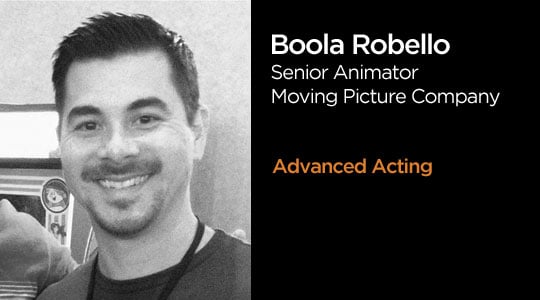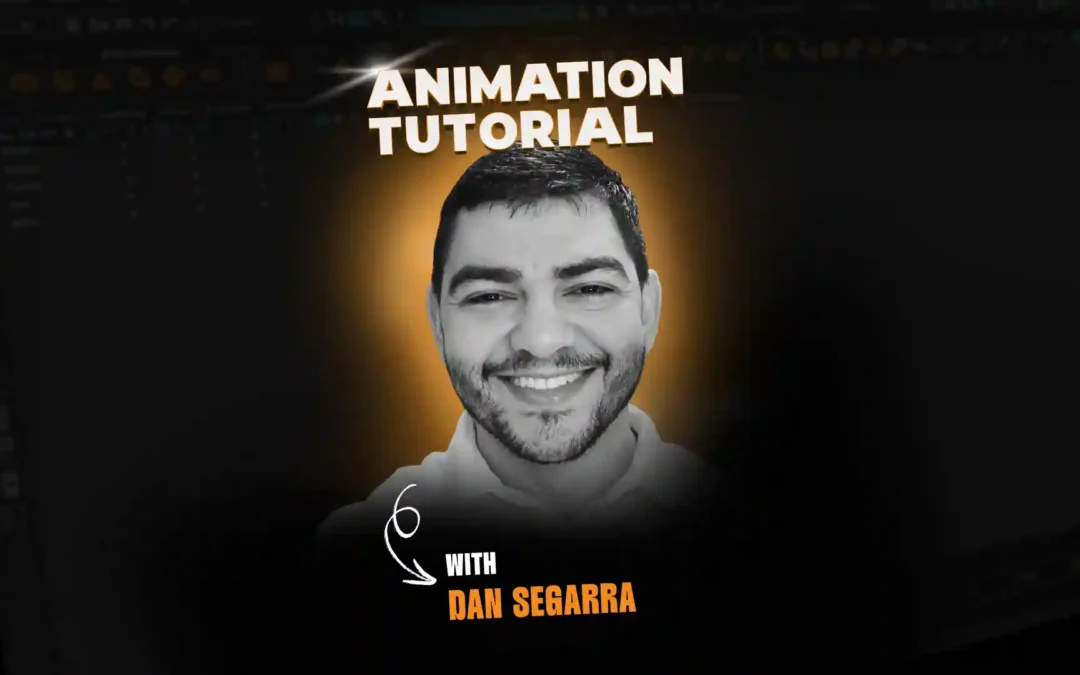 You have a full time job, you have kids to pick up, and your homework is due tomorrow! What do you do?!
24-year veteran animator and mentor, Clarence “Boola” Robello, offers his industry advice on managing time so you can do everything you need to do without the stress. We guarantee you that there’s something here you can put into action right away. Let’s get organized!
You have a full time job, you have kids to pick up, and your homework is due tomorrow! What do you do?!
24-year veteran animator and mentor, Clarence “Boola” Robello, offers his industry advice on managing time so you can do everything you need to do without the stress. We guarantee you that there’s something here you can put into action right away. Let’s get organized!
Why is Time Management Important for Animators?
Time Management is something everyone struggles with. Whether you are a college student, a busy professional, a parent, or an aspiring animator, everyone struggles to find the time to get to the things they want to work on. But finding the time is the wrong way to look at it, you have to make the time. If you want to be in shape, you make time to go to the gym. If you want to have a relationship, you make time for your partner. If you want a connected family, you make time to spend with them. If you want to become a professional animator, you have to make the time outside of your animation classes to advance yourself further. The best way to do that is to make a schedule that will help you achieve your specific goal. First let’s start with some facts: A standard professional animator’s workday is 8-10 hours, depending on which studio you work for. The 12-14 hour day is during our crunch-time/overtime where we are working towards the final end date to finish the project. That’s a lot of hours of animating every day and it means we quite a bit of practice on the job. As an animation student, part of your commitment is to get in as many hours of practice as you can to achieve your goal of becoming a professional animator.As an animation student, part of your commitment is to get in as many hours of practice as you can to achieve your goal of becoming a professional animator.Over the years teaching here at AM, I’ve seen many students struggle with managing their time in order to complete their assignments successfully. What I’d like to offer in this blog is the advice that I’ve shared with every single student who has taken my class. Those that followed this “workflow” and stayed focused and committed to their schedule improved extremely well within a 12-week course at AM. They really made leaps and bounds in their work because of their commitment to themselves. I am not exaggerating as I have seen student’s animation go from mediocre at best, to “wow can this be the same student?” I know this schedule works not only because of my students’ success with it, but because it is the exact schedule I made for myself when I was working on my goal of becoming an animator. It takes a lot of dedication and discipline to achieve your goals in life, but if you’re willing to do that I’d like to help. Here is what I did, what other successful students have done, and what I suggest you do, too!

Weekly Animation Schedule
Monday – Friday
If you work full time or go to school full time, when you get home be sure to eat dinner and decompress a bit. If you have homework, get that done. If you’re not in college and are a working professional looking to become an animator, then get onto your animation homework immediately. Lock yourself in your studio and animate until it is time for you to turn in for the night. Nothing else exists during this time. No television, no phone conversations, no texting, no distractions of any kind! Only animation.Lock yourself in your studio and animate until it is time for you to turn in for the night.This is your time. You are working on your skills and that process deserves focus. If this is your dream, then to make it a reality by doing something about it. Before you close down the computer, share your work on the AM Campus or other animation forums of your choice for critiques.
Follow this same pattern the next day, except now be sure to take in the feedback you received from peers and forums.Follow this same pattern the next day, except now be sure to take in the feedback you received from peers and those forums. Remember, some of your peers are working professional animators! Address the repeating notes because those are the issues everyone is seeing, and then move on to the ones you personally agree will make your work stronger. If you do this right, you will effectively be putting in at least 4-6 hours a day of animating time on your assignment. What you are trying to do here is replicate the hours put in at a studio. If a professional animator animates 8-10 hours a day, you putting in 4-6 hours a day on your assignment will at least reach a half-day of their full day of work!
Saturday
If you do not have any personal/family plans, treat Saturday as a full 8-10 hour work day animating your assignment. Submit your work at the end of the evening for your mentor’s critique. At the very latest, submit first thing Sunday morning. If you do have plans treat it like Monday-Friday. If the plans are in the evening reverse it all where you are animating in the day and then you can go out at night.Sunday
This is your day off, with the exception of watching the AM video lecture and taking detailed notes. If you do not work or have school and you are home Monday-Friday, then I would treat Sunday as a full workday, animating all day for 8 hours a day. If this is the case for you, you could potentially take both Saturday and Sunday off, simulating the actual working week of a professional animator (not on crunch time).
Good Animation Habits = Growth
At first glance this workflow may seem like common sense, but you would be very surprised how many people never see it this way! This workflow will help you keep your time managed properly, and will get you animating the most amount of hours for at least 6 days straight. Remember, it is the closest way to simulate the working hours of a professional animator. Now of course things in life will come up and adjust this schedule. Just bend and flow with it as best you can, but get back on track as soon as it passes. In order to make it in this business you have to really pay your dues. Trust me, we all did. This exact workflow schedule is how I became an animator very quickly. It made my work take significant steps forward and therefore get noticed when the time came. This kind of dedication and discipline that I learned from martial arts training will bring you the results you are searching for.If your goal is to become a professional animator, then you need to seriously practice like professionals do.Look at it this way, if your goal is to become a professional animator, then you need to seriously practice like professionals do. This is the kind of passion and dedication we bring to our work in the films and projects that have inspired you to become an animator. It’s not impossible to do this, but it does take a lot of hard work and a lot of dedication on your part. You have to put in the time and pay your dues. It will not happen just because you attend a certain school, learn a few quick tips and tricks, and animate an hour here or there. If you are willing to truly practice hard and improve and grow from your mistakes, then there is only one outcome that is certain. But it all starts with how you manage your time! If it is important to you, then make the schedule, follow it, and go make your dream become your reality. I sincerely hope this has been helpful for you. I wish you all the best in your goals and life.

Clarence “Boola” Robello is a 24 year animation veteran and worked in many types of animation genres from 2D, 3D Animation to VFX Animation. Classically trained, Boola worked at studios such as Disney Feature Animation, DreamWorks Animation, Warner Bros. Animation, Sony Pictures Imageworks, Rhythm & Hues, and is currently at Moving Picture Company (MPC) in LA. He is also a veteran mentor at Animation Mentor since 2008. His notable credits include, The Jungle Book, Rise of the Planet of the Apes, Night at the Museum: Battle of the Smithsonian, Tarzan, and Mulan. He’s currently teaches Advanced Acting at Animation Mentor.



